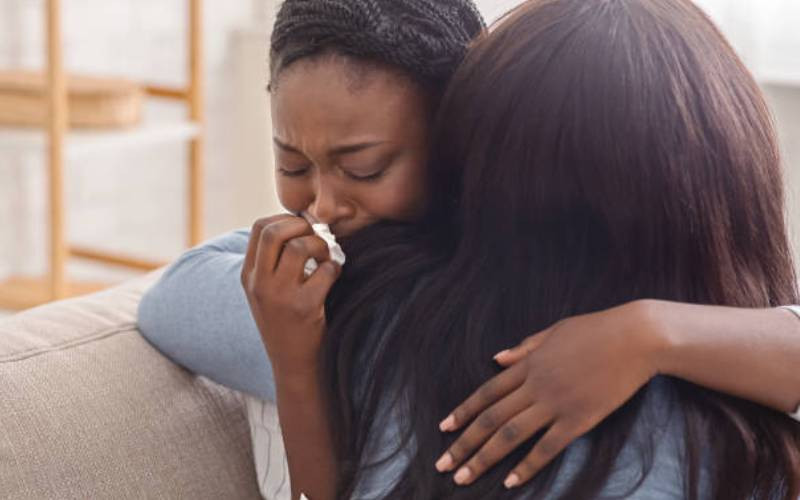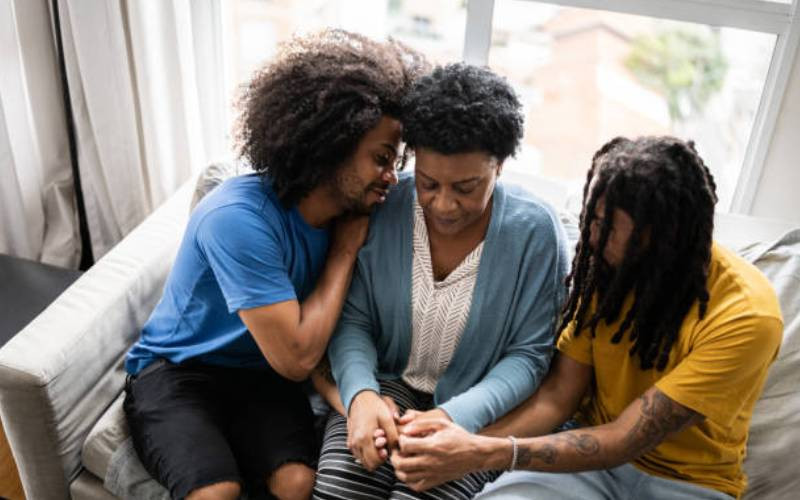
Grief is the response to a loss, particularly the loss of a loved one. It may also be experienced by the loss of a valued possession, a job, the end of a relationship or a pet. It also follows a diagnosis of a terminal illness like cancer, diabetes or a change in HIV status.
Negative emotions such as sadness, anger or sorrow are associated with grief. Besides the psychological aspect, it also has a bearing on the social, cognitive and physical state of the individual.
The terms grief and bereavement have always been used interchangeably although they have a slight variance. Grief is the reaction to loss while bereavement is the state of that loss.
The Grieving Process
Elizabeth Kubler-Ross, 1926, a Swiss American Psychiatrist, in her book, "On Death and Dying", surmised that grief follows five sequential stages. That are Denial, Anger, Bargaining, Depression and finally Acceptance.
The first stage of grief is Denial, this happens immediately after a person becomes aware of their loss, after that phone call that a loved one has died in a car accident. It is the conscious or unconscious decision to refuse to admit the truth. A person feels numb and carries on with life as if nothing has happened. They hold a belief that the deceased will walk through the front door or call back. Or that the doctor was mistaken- the diagnosis cannot be true.
Anger follows Denial. It is a natural emotion. This feeling could be directed anywhere-towards the deceased, self, the doctor or towards the reality of death itself. Bargaining happens when struck with the reality of loss and pain. A person starts to ask themselves so many 'what if' questions. Wishing that they could reverse the situation and do things differently in pursuit of a better outcome.
Depression is marked by intense feelings of sadness and longing. A sense of loss of meaning of life without the deceased.
- How can I help my kids build stronger social skills?
- Money talk at the dinner table: Teach children value
- How to prepare your toddler for a new sibling
- Teaching kids to choose the right company early
Keep Reading
The last stage of grief is Acceptance, this is where the pain eases and one starts to come to terms with what happened. One may never really 'get over' a loved one but they learn to live again and cherish the memories once shared. A normal grieving process should last for a few days to a year.

Complicated Bereavement
Some people do not go through the normal grieving process, which fades away gradually and resolves through acceptance. They may have these feelings linger for longer than usual or get worse with time resulting in complicated grief. A condition known as Prolonged Grief Disorder may develop in severe cases.
The disorder has recently been included in DSM-V-TR: Diagnostic and Statistical Manual for Mental Disorders, Fifth Edition, Text Revision. This is the latest publication of the American Psychiatric Association made for healthcare professionals globally as an authoritative guide for the diagnosis of mental disorders.
Prolonged Grief Disorder is characterized by an intense yearning for the dead person, identity disruption, disbelief, social withdrawal, numbness, a sense of meaninglessness and loneliness. A person may actively avoid reminders that the person is dead. Experiences strong emotions related to death, anger, bitterness or depression. Strong feelings of loneliness and separation from others.
Dealing with Grief
Letters we don't send, write a letter addressed to the deceased. Pen down your heartfelt pain from their absence, how much you miss them, the memories you shared and how life is without them.
Allow yourself to feel the emotions; normally, the feelings we resist tend to persist. Allow yourself to cry without holding back. Understand that emotions are temporary and that the dark cloud will pass away eventually.
Talk about it with someone; could be a close friend, partner or counsellor. This is will help you deal with loss and avoid complicated bereavement. Avoiding the topic will only make the grieving process last longer than it is necessary. Talk about the deceased and you will soon find yourself at a place of acceptance.
Connect with others; this is not the time to isolate, and draw close to friends and family, inducing people who were special to the deceased. Stay connected to your usual support group or try joining a bereavement support group.
 The Standard Group Plc is a multi-media organization with investments in media
platforms spanning newspaper print
operations, television, radio broadcasting, digital and online services. The
Standard Group is recognized as a
leading multi-media house in Kenya with a key influence in matters of national
and international interest.
The Standard Group Plc is a multi-media organization with investments in media
platforms spanning newspaper print
operations, television, radio broadcasting, digital and online services. The
Standard Group is recognized as a
leading multi-media house in Kenya with a key influence in matters of national
and international interest.


